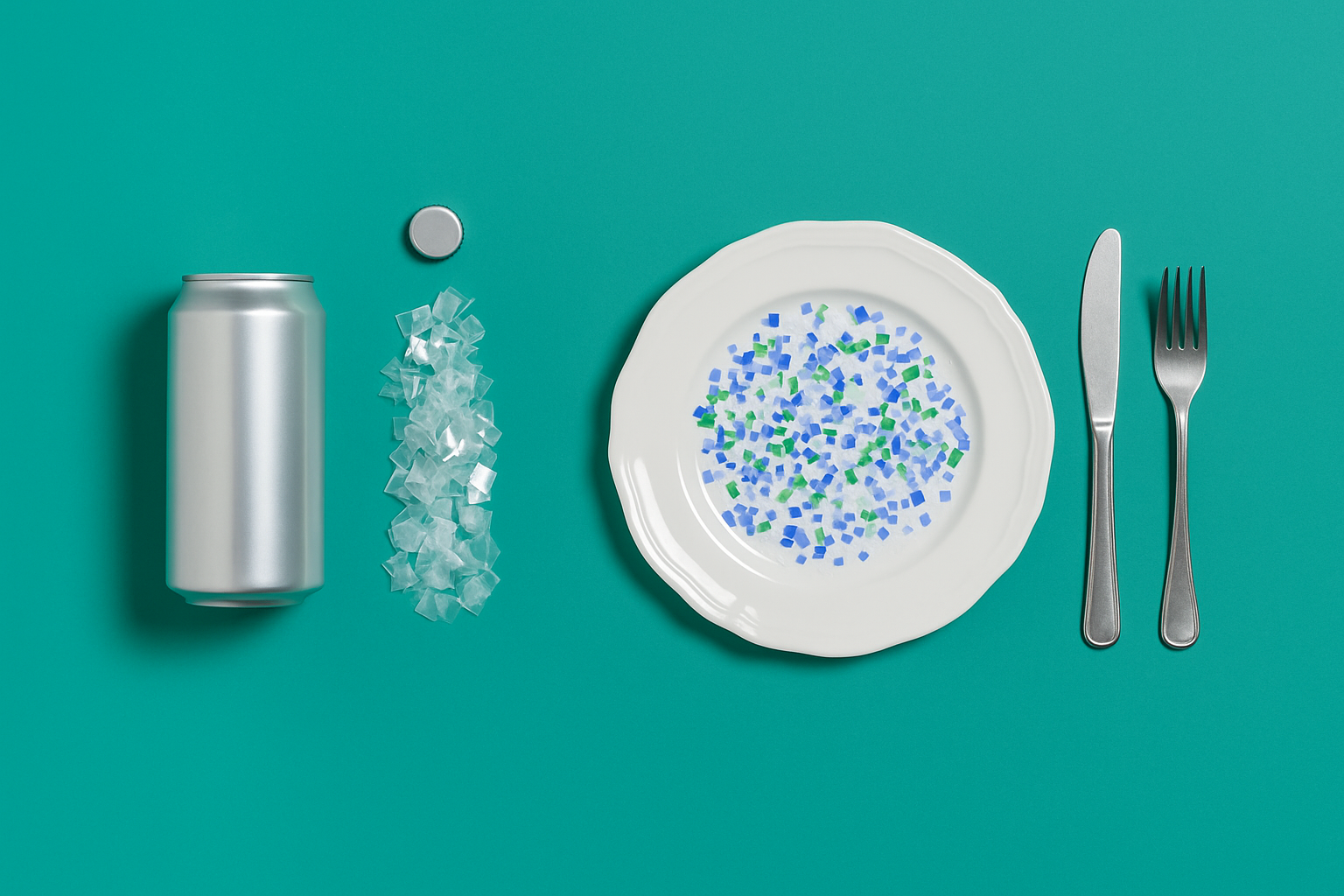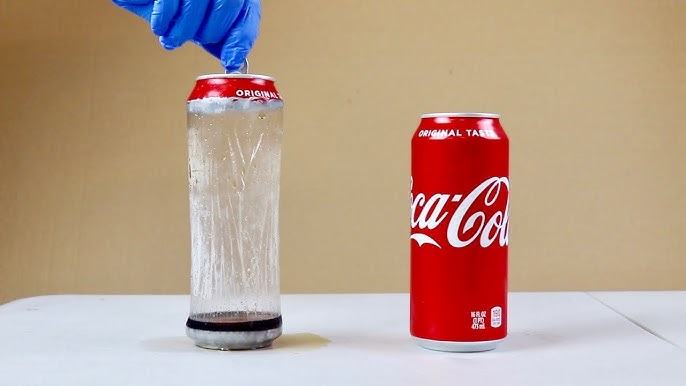Most people know to avoid single-use plastic bottles, but few realize that even “BPA-free” aluminum cans and bottles contain plastic liners that can degrade into microplastics. These invisible fragments can end up in your drink — and, over time, inside your body.
At Verse, we’ve chosen glass not just for its premium feel but for its purity. Glass is chemically inert — it doesn’t leach, react, or break down into micro- or nanoplastics. In a world saturated with plastic, every sip from a Verse bottle is a statement: wellness without compromise.

Microplastics are tiny plastic particles less than 5 millimeters in size, formed when larger plastics — bottles, bags, coatings, even synthetic fabrics — break apart under heat, sunlight, and friction .
Recent research estimates humans may ingest the equivalent of a credit card’s worth of plastic each week (University of Newcastle study), primarily through food, water, and air. Microplastics have been found in human blood, lungs, placenta, and brain tissue (Ragusa et al., 2021; Jenner et al., 2023), and once inside the body, they accumulate over time.
Early data suggest these plastics can:
While the science is evolving, one thing is clear: beverage packaging is a direct route of exposure — and one you can control.
Aluminum drinks are often marketed as sustainable, but every can and bottle is lined with a plastic resin coating (typically epoxy, polyester, or acrylic) to prevent corrosion (Vilarinho et al., 2019).
Even when labeled BPA-free, these liners can still shed microscopic particles, especially under heat or with acidic liquids (Yang et al., 2011). And replacement chemicals like BPS and BPF may be just as hormonally active as BPA itself (Rochester et al., 2015).
So, “BPA-free” doesn’t mean microplastic-free.
And while aluminum is recyclable, its polymer liners are not — they fragment into the environment, perpetuating contamination.
By contrast, glass is chemically inert, 100 % recyclable, and doesn’t require any liner. That’s why Verse packages every formula in glass — to preserve flavor, purity, and peace of mind.

Emerging studies show that microplastics interact with nearly every system in the body:
Reducing microplastic exposure supports long-term metabolic and cardiovascular health — two of Verse’s core wellness pillars.
At Verse, packaging is part of the formula. Our sculptural glass bottles protect both the product and the person enjoying it.
Glass advantages:
Our formulations — combining adaptogens, electrolytes, and nootropics — are meant to fuel clarity and balance. Glass ensures those ingredients reach you uncompromised.
Because clarity shouldn’t just be a feeling — it should be a standard.
Each swap compounds. Verse simply starts you from a better baseline.
Zero sugar. Zero toxins. Zero microplastics.
Verse exists to prove that health, design, and sustainability can coexist.
Every bottle is proof that luxury can be clean — that what’s better for your body can also be better for the planet.
Sip the future. Sustain your clarity. Choose glass.
Find VERSE nearby at trusted bars, restaurants, lounges, and other destinations that offer outstanding hospitality to be the first at the table.
Not Everywhere. Just the Right Places.